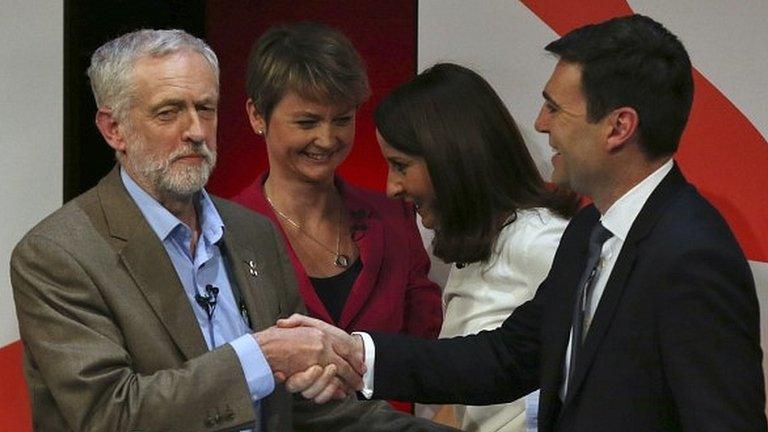Unite warns Labour to be 'voice' of the workers
- Published
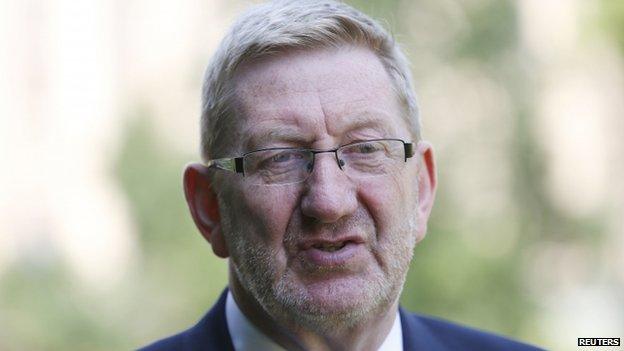
Unite's affiliation to Labour could be reconsidered unless the party shows it represents working people, the union's leader, Len McCluskey, has said.
In a BBC interview, he refused to be drawn on his preferred leadership candidate but said it was "essential that the correct leader emerged".
He also called for "a genuine debate" about the party's direction.
Yvette Cooper, Liz Kendall, Mary Creagh and Andy Burnham are in the race to be named Ed Miliband's successor.
Since Labour's election defeat, the party leadership contenders, MPs and union leaders have been trying to work out where the party went wrong.
Jon Cruddas - who wrote the election manifesto and is now leading a review into the defeat - said Labour was facing arguably the greatest crisis in its history.
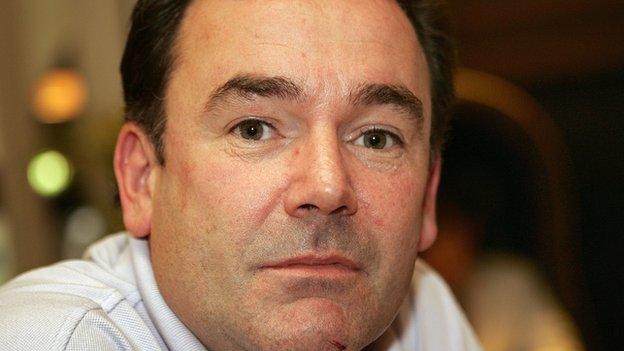
Jon Cruddas helped write Labour's manifesto
Labour lost because it focused on "micro policies" and now needed to fundamentally rethink who it was for and what it represented, he said.
Mr McCluskey told BBC Radio 5 live's Pienaar's Politics Labour had to demonstrate it was "the voice of ordinary working people" and "organised Labour".
"If they do that in a way that enthuses us, then I don't believe that the mountain that is ahead of us is un-climbable.
"But it's up to them. If they don't, if they kind of inject more disillusionment in the party then the pressure will grow from our members to rethink. It's certainly already growing in Scotland," he added.
The Unite leader denied that Mr Burnham was his favoured candidate, and said Labour-affiliated trade unions would organise a hustings where all the candidates could make their case.
In the interview, Mr McCluskey also said the left needed to "challenge" UKIP, and he said there should be a debate on the free movement of labour.

Analysis by our political correspondent Carole Walker
The struggle over Labour's future direction is now focused on its links with the unions.
In a passionate speech on Saturday, the party's outgoing leader in Scotland, Jim Murphy, denounced what he called the destructive behaviour of the leader of Britain's biggest union, Len McCluskey.
On Sunday the frontrunner in the leadership contest, Andy Burnham, struck a very different tone.
"I've been speaking to Len," he said, though he stressed he was also talking to business leaders and others as he musters support for his campaign.
Mr Burnham and his team have been trying to shrug off suggestions that he is the "union candidate", saying he wants to unify the party.

His comments follow calls from Mr Burnham and Ms Creagh for an early referendum on UK membership of the EU.
Prime Minister David Cameron has pledged to renegotiate a "better deal" for the UK and hold an "in-out" referendum by the end of 2017.
Mr Burnham told BBC One's Andrew Marr Show that he had been watching the changing public opinion and felt "a prolonged period of uncertainty" was "the worst of all worlds for business".
Andy Burnham: "We need a credible package of reforms on immigration"
He said the vote should be brought forward to 2016, adding he wanted to make the pro-European case, but said it was only winnable if there was a credible package of immigration reforms.
The shadow health secretary added that if Mr Cameron did not deliver on reforms "we'll be sleepwalking to exit" from the EU.
He said he supported free movement of people but not the freedom to claim benefits. Labour needed to make that change, he said, and have an immigration policy people support.
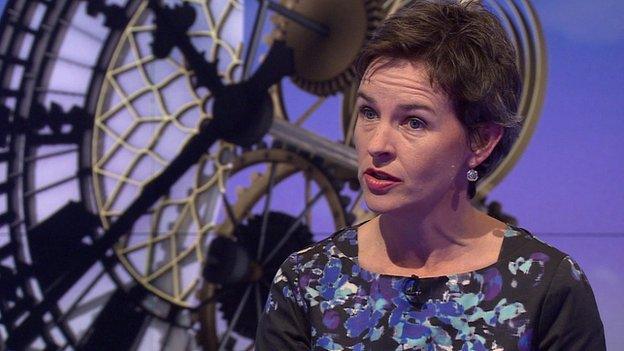
Rival leadership candidate Mary Creagh said she thought the referendum was "throwing a long shadow over British jobs and British growth" and "if it's going to happen, it should "happen quickly".
The shadow international development secretary also told the BBC's Sunday Politics programme that Labour's proposed "mansion" tax on properties worth more than £2m should be dropped.
"It alienated a whole bunch of people - it said that we are against them getting on and doing well."
She added that the party needed to look again at its policies and make sure they "reach out of people who get on, want to earn money and want to do well for their families".
'Lost emotional connection'
On the state of the party, Mr Burnham said he did not accept it was "ground zero", but Labour had lost its "emotional connection" with millions of people and needed to re-establish its reputation on the economy.
The last Labour government was "not profligate" but "we did let the deficit get too large", he added.
He said Rachel Reeves, shadow secretary for work and pensions, and "one of the best brains in the party", was helping him to come up with a pro-business, fiscally- responsible approach.
Mr Burnham said he had spoken to Mr McCluskey since the election. Ms Creagh refused to be drawn on her view of Unite's role in Labour's leadership election, which will be decided using the one member, one vote system.
In his BBC interview, Mr McCluskey also hit back at claims made by outgoing Scottish Labour leader Jim Murphy that he was the "kiss of death" for the party.
Mr Murphy had used him as a "bogeyman", adding that the majority of Unite members in Scotland voted for the SNP.
Labour lost all but one seat in Scotland, as the SNP swept up 56 of its 59 seats.
- Published13 May 2015
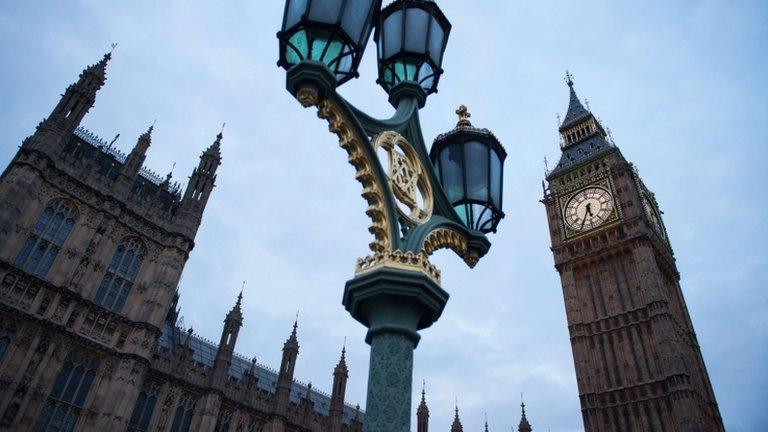
- Published17 May 2015
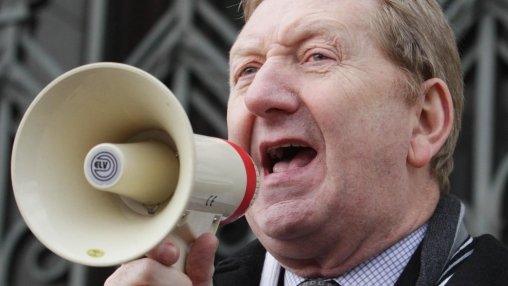
- Published18 May 2015
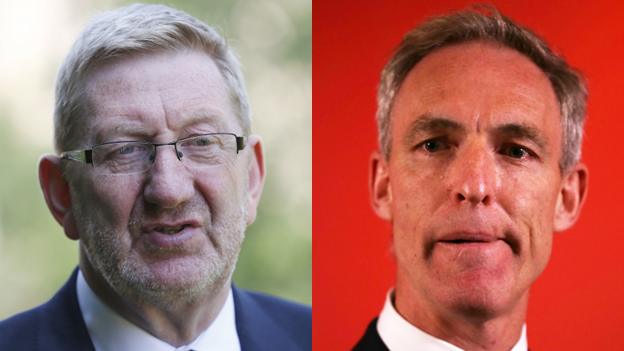
- Published16 May 2015
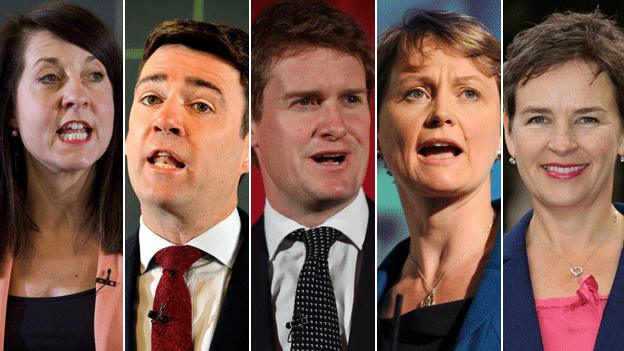
- Published16 May 2015
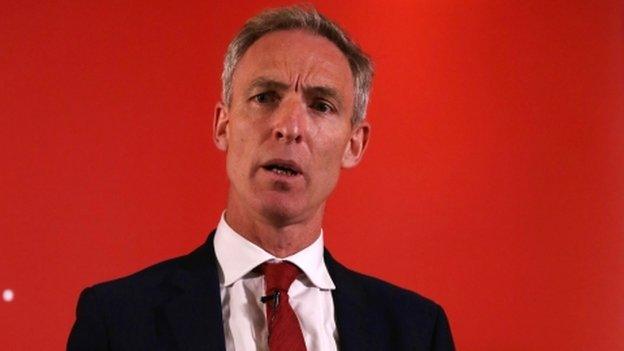
- Published12 September 2015
